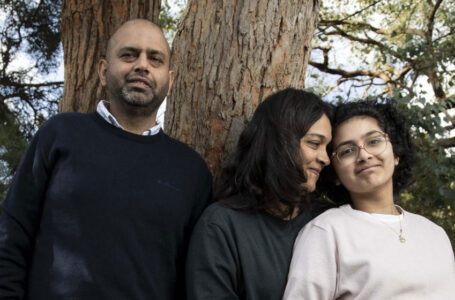Renaming Berwick Springs Lake to Guru Nanak Lake – Local Residents are Appauled

Source – change.org
The proposal to rename Berwick Springs Lake to Guru Nanak Lake has sparked a debate among the locals and the widespread community in Victoria. What started as an initiative to honour the Sikh spiritual leader, Guru Nanak, has revealed differing opinions within the local community. While some see this as an opportunity to celebrate cultural heritage, others view it as unnecessary and disruptive to the existing status quo.
The renaming has prompted petitions, local lobbying, and spirited discussions in community forums and on social media. Supporters argue that the change is a step towards recognising the contributions of the Sikh community to Australia, particularly in Victoria, where a significant portion of the Indian diaspora resides. Minister for Multicultural Affairs Ingrid Stitt also highlighted this recognition by announcing $600,000 in funding for Langar celebration events across Victoria. On the other hand, those who are concerned feel it may set a precedent for renaming public landmarks based on the demands of particular groups, which they believe could eventually lead to confusion or dilution of Australian historical identity.
To fully understand the motivations behind these contrasting opinions, it’s important to take a closer look at the reasons driving the community’s differing views on this issue.

Why Are People Expressing Disagreement?
As of writing this article, a change.org page has already amassed 1500+ signatures from local residents as the wave of disagreement stems from a few key concerns.
Here are the critical questions that, the head petitioner, Mr Michael Ball has asked
- Why has the name changed of The Berwick Springs Lake to Guru Nanak?
- Why weren’t local residents consulted on the name change?
- Who initiated this name change without local community consultation?
- Does this mean our local area will no longer be called Berwick Springs and will all street signage and names on maps be changed and now be called LAKE GURU NANAK?
- What relevance does Guru Nanak Dev Ji born in 1494 and founder of Sikhism have to our local area? Why was the Sikh religion chosen, given we are a multicultural community with many religions and community groups living in our area?
- What will the permanent signage look like, and will our local residents be consulted?
- Over 1,000 local residents took the developer of Alira to VCAT to save the Berwick Springs Estate Entry Features, name and all, will residents have to go to VCAT again?
Many community members worry about the cultural precedent set by renaming public spaces, especially ones with long-established identities. Berwick Springs Lake is seen as part of the local history, and altering its name could be interpreted as prioritising one group’s heritage over others. Some residents feel that the lake, as a communal asset, should not be associated exclusively with any specific community or religious figure, regardless of their contributions.
Another significant reason behind the wave of disagreement is a lack of public consultation. A petition opposing the renaming has amassed roughly 700 signatures, with many residents voicing frustration that they were not informed or consulted before the decision was made. Many who oppose the renaming feel that they were not adequately involved in the discussion before the decision was pushed forward. The perception that a minority group had the ability to exert considerable influence without widespread public discourse has left some feeling marginalised in their own community. This has spurred them to raise their voices to prevent what they see as a possible overreach of minority lobbying power.
Moreover, there are concerns that renaming the lake could have unintended socio-cultural consequences. When a lake is named after a specific cultural or religious figure, such as Guru Nanak, it can naturally attract more members of that community to the area. If this leads to concentrated cultural communities, it could pose challenges to broader social integration and multicultural cohesion.
On the other side, supporters of the renaming see it as a positive symbol of multicultural integration and inclusivity. For them, renaming the lake after Guru Nanak acknowledges the Sikh community’s contributions to the cultural and social fabric of the region. It represents a deeper recognition of diversity and shared history, and serves as an important gesture for Sikh Australians who have made Victoria their home.
Concerns Over Circumventing the Process of Engage Victoria’s ‘Name-A-Place’ campaign
In addition to cultural concerns, there are questions regarding whether the proper process was followed. According to the official rules of the ‘Name-a-Place’ campaign (https://engage.vic.gov.au/name-a-place), councils are required to follow a specific procedure that includes public consultation and ensuring that the nominated name has a connection to the local area. Critics argue that these rules were not strictly adhered to, especially when considering the campaign’s timelines.
The campaign’s timeline clearly states that the review of nominations would take place between 24 July 2024 and 16 December 2024. However, the renaming announcement appears to have been made prematurely, suggesting that the decision may have bypassed the intended community consultation process. This has further fueled discontent among those who believe the renaming was pushed through without sufficient oversight or transparency. The renaming is part of the State Government’s ‘Name-a-Place’ campaign, which aims to rename over 6000 public places in the next three years, but critics argue that in this case, community engagement was inadequate.
Furthermore, some argue that naming a major public landmark, such as an entire lake, after a figure who never set foot in Australia stretches the original intent of the ‘Name-a-Place’ campaign. The campaign was intended to honor local Australians who have made a significant impact on the area. By naming the lake after Guru Nanak, critics feel that the spirit of the campaign has been altered to suit the ambitions of a specific group, potentially undermining the broader community’s shared history.
Perspectives on the Renaming Debate
There are two distinct ways to look at the renaming debate, each reflecting different values and priorities within the community.
Community Empowerment: Advocating for Change
The renaming of Berwick Springs Lake highlights what can be achieved when a community unites around a common cause. Proponents of the change have worked within the democratic system to make their voices heard. This is a free country, and the Sikh community has gone through all the right processes—petitioning, lobbying local council representatives, and gaining visibility for their cause. They have leveraged the tools available to them to honour their cultural and spiritual heritage in a meaningful way.
In this context, the renaming is not just about changing a name—it’s about community empowerment and using the mechanisms of government to uplift underrepresented voices. It is a testament to how a democratic society should function, with engaged citizens pushing for changes that they believe will benefit the community as a whole. This perspective emphasises the importance of public participation, advocacy, and persistence when trying to make real changes within a legislative framework.
Opposing the Renaming: Exercising the Right to Dissent
On the other side, those who disagree with the proposal have every right to oppose it, using the provisions available in a democratic society. They can appeal to their local representatives, initiate public petitions, and push for referendums or consultations before any official change is enacted.

This perspective underscores that those who do not support the renaming also have mechanisms within the legal framework to halt or modify the decision. The local government system in Australia allows for considerable citizen input, especially on matters affecting public spaces. Anyone who feels disenfranchised by the decision can engage in local council meetings, appeal for wider community consultations, or even propose alternative names that represent a broader spectrum of community members. Democracy is a two-way street, and just as it allows for change, it also allows for challenge. This balance ensures that no one group—regardless of size or influence—dominates the public narrative without debate.
What’s next?
The debate over renaming Berwick Springs Lake serves as a powerful reminder of the challenges and opportunities inherent in a multicultural society. On one hand, it showcases the success of minority communities in advocating for representation and inclusion. On the other, it highlights the need for broader, more inclusive discussions that bring all voices to the table before decisions are made.
This issue is emblematic of the balancing act that multiculturalism requires. As Victoria becomes increasingly diverse, the challenge for local governments is to celebrate all cultural contributions without alienating sections of the community. The Berwick Springs Lake debate is not simply about a name—it’s about the story of a shared space, who gets to tell that story, and how it will be told in the years to come.
Before the Permanent signage is installed, there may be some provision for a final local community consultation. All opinions could be heard and weighted, and a democratic decision could be made that’s mutually beneficial to culture, communal harmony, and the local community.





